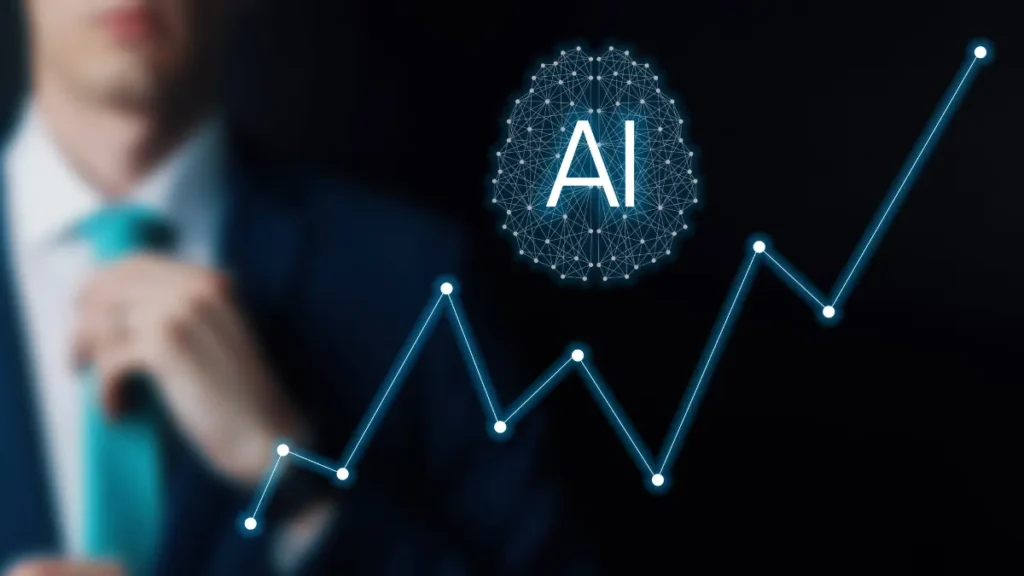We often get super excited about cool stuff happening with Artificial Intelligence, thinking it’ll totally change the future. But guess what? AI is already a big part of our everyday lives! It’s doing stuff behind the scenes that we might not even notice.
Remember all those stories about robots taking over our chores? Like Mabel The Robot Housemaid from way back in 1966? Yeah, that didn’t quite pan out. But now, we’ve got helpers like Alexa, Siri, and Cortana. They might not fold our laundry, but they can turn our lights on, set our ovens, or adjust the thermostat when we’re not home. They’re basically part of the fam now.
Experts say that by 2033, robots could be doing almost 40% of our chores. Sounds a bit like the old claims, right? But this time, it’s not just wishful thinking. Researchers from Japan and the UK ran the numbers and asked 65 AI experts what tasks they think robots will handle in the next five to ten years.
The study asked, “What’s in store for unpaid work? If robots take our jobs, will they at least take out the trash?” It predicts that in the next decade, the time spent on housework will drop by 46%. But the big change will likely be in grocery shopping. Experts think that by 2033, nearly 60% of our grocery runs will be done by AI.
However, don’t expect machines to start babysitting or looking after grandma. Even if they could technically handle these tasks, experts believe there would be serious concerns about letting machines take care of kids or the elderly. It’s not just about the technical side; there are worries about how it might affect child development and privacy.
If AI isn’t on diaper duty or tackling our wrinkles, what exactly is it up to? Well, despite skipping out on some household chores, AI is a huge player in the global economy. Just check out those numbers: It’s projected to hit $184 billion in 2024. But hold onto your hat because by 2030, it’s expected to skyrocket, growing by almost 29% and reaching a jaw-dropping $826 billion. That’s some serious growth!
Here are some areas where AI plays an integral part in our lives, so much so that we almost forget how we functioned before.
AI has seamlessly woven itself into our daily routines, revolutionizing how we interact with technology. Just think about unlocking your phone with Face ID – that’s all thanks to AI magic. Using biometrics, your phone scans your face in 3D with thousands of invisible dots, then compares it to stored data using machine learning algorithms to confirm your identity. Apple boasts that fooling its Face ID is about as likely as winning the lottery.
Once we’re in, the possibilities are endless. Some folks scroll through social media or catch up on news, while others dive into online games or visit virtual casinos. And guess what? AI is behind the scenes here too, from customer service to handling payments and even suggesting new games based on your preferences. No need to sift through endless options – AI remembers what you like and serves up similar experiences, making your time online more personalized and enjoyable.
AI isn’t just about unlocking phones and playing games; it’s also behind the scenes of our social media feeds, making them as personalized as possible. Ever notice how your feed seems tailor-made for you? That’s AI at work, learning from your past reactions and preferences to suggest friends, posts, and news articles.
But AI’s job doesn’t stop there. It’s gearing up to tackle some big challenges, like spotting and filtering out fake news and stopping cyberbullying. With the 2024 elections on the horizon, keeping misinformation in check is more important than ever.
And when it comes to writing, AI has our backs too. Whether we’re drafting emails, texts, or reports, tools like spell check and Grammarly use natural language processing and smart suggestions to help us craft error-free messages. Plus, AI lends a hand with spam filters, keeping our inboxes junk-free, and even helps protect our computers with antivirus software powered by machine learning.
One of the coolest changes in recent years? The rise of digital voice assistants. Whether we need directions or just want to know if it’s going to rain, Siri, Alexa, Google Home, and Cortana have our backs. They’re like our personal co-pilots on the road and endless sources of info at home. Powered by AI, these assistants use fancy natural language processors to understand and answer all our burning questions. And they’re getting pretty good at sounding almost human – they can even dish out sassy responses now and then.
Sure, we might not have robot maids like we dreamed of back in ’66, but our homes are getting smarter by the day. We’ve got thermostats we can control from our phones and fridges that can whip up shopping lists based on what’s running low. They’ll even suggest what to buy next based on what’s already in there – like pairing wine with dinner or picking out the perfect condiment. Talk about living in the future!
Mabel might still be MIA, but who knows? Maybe she’ll make her grand debut one of these days. Until then, we’ll just have to settle for our trusty digital assistants and smart gadgets.


